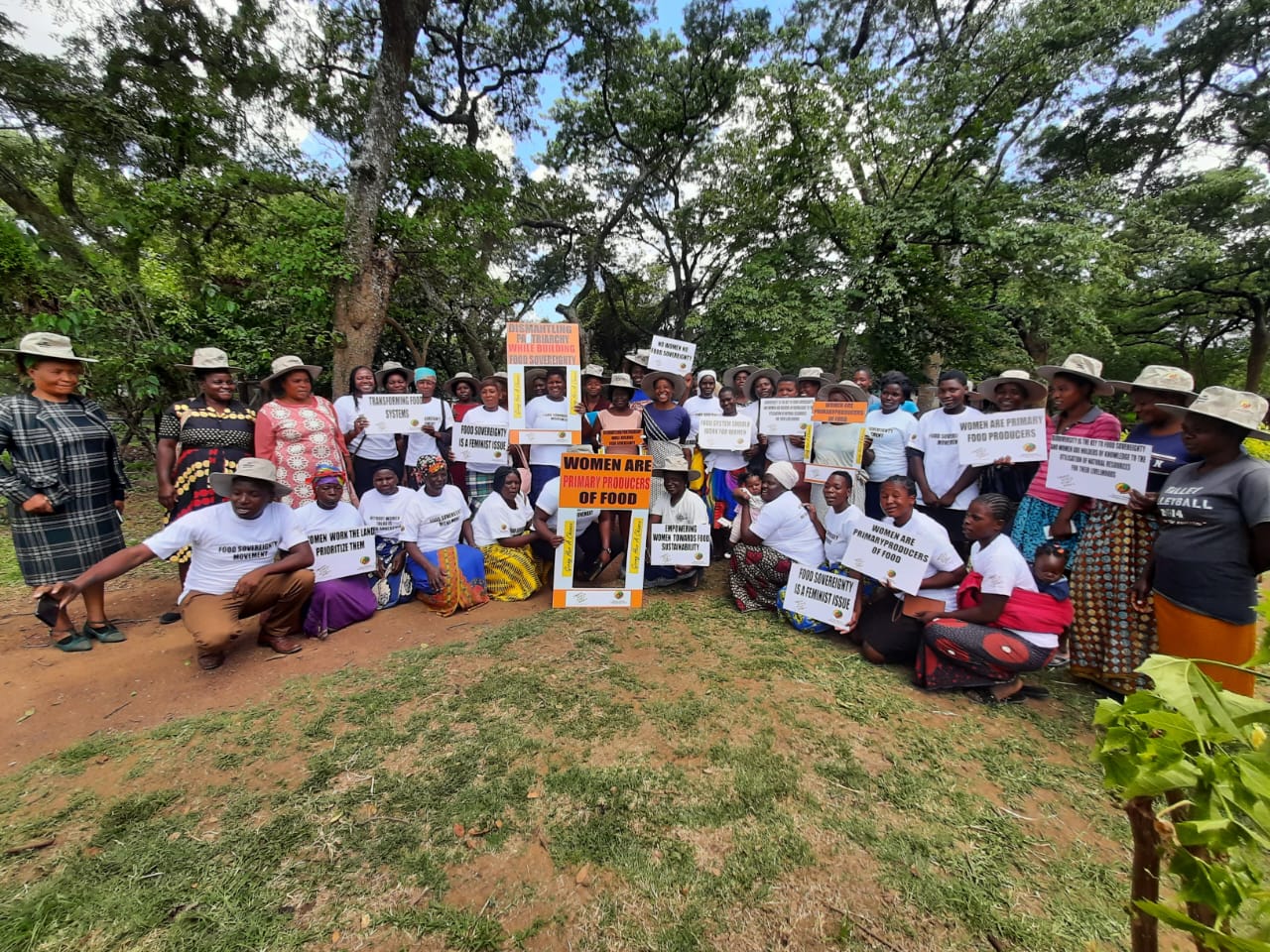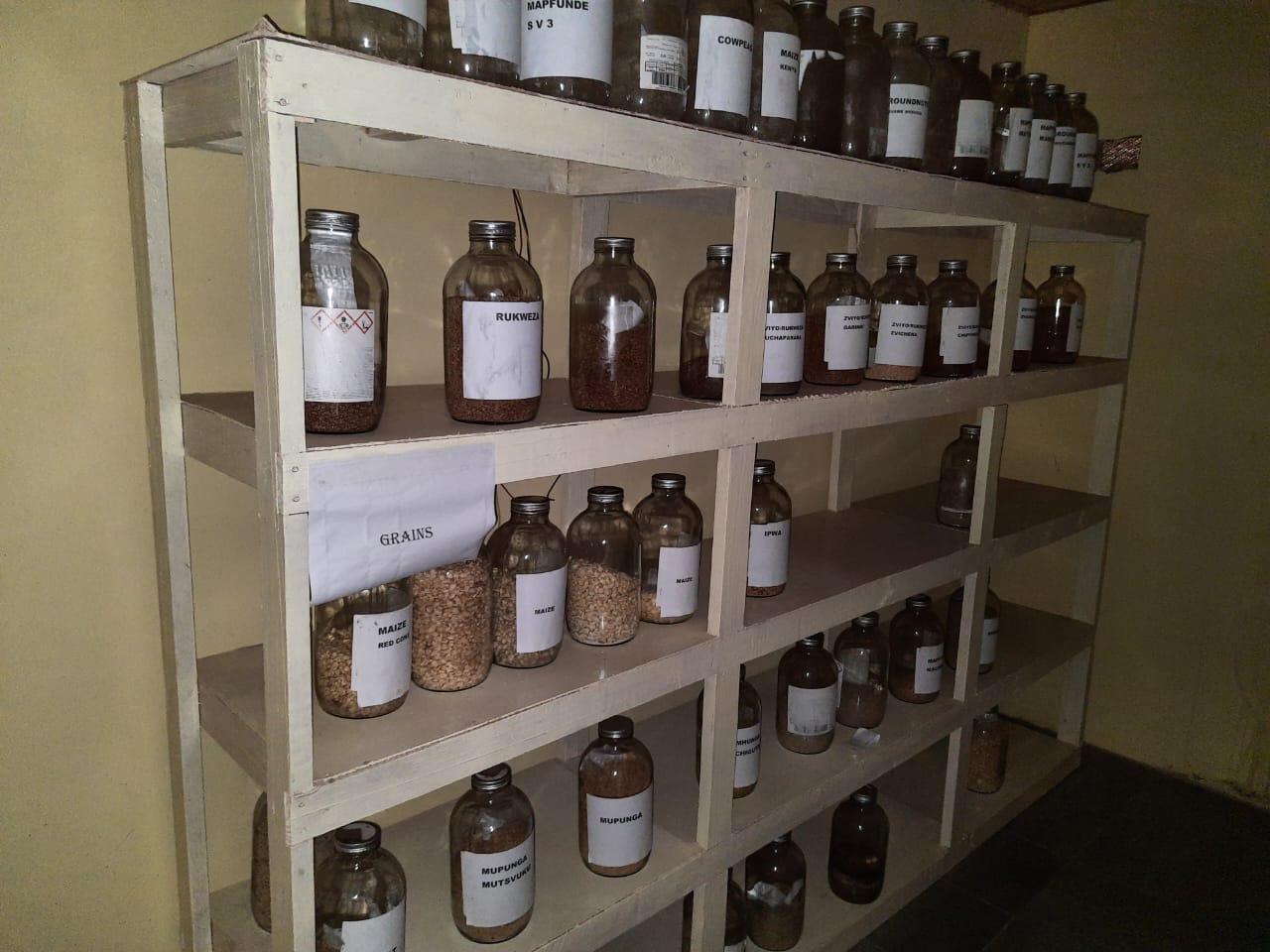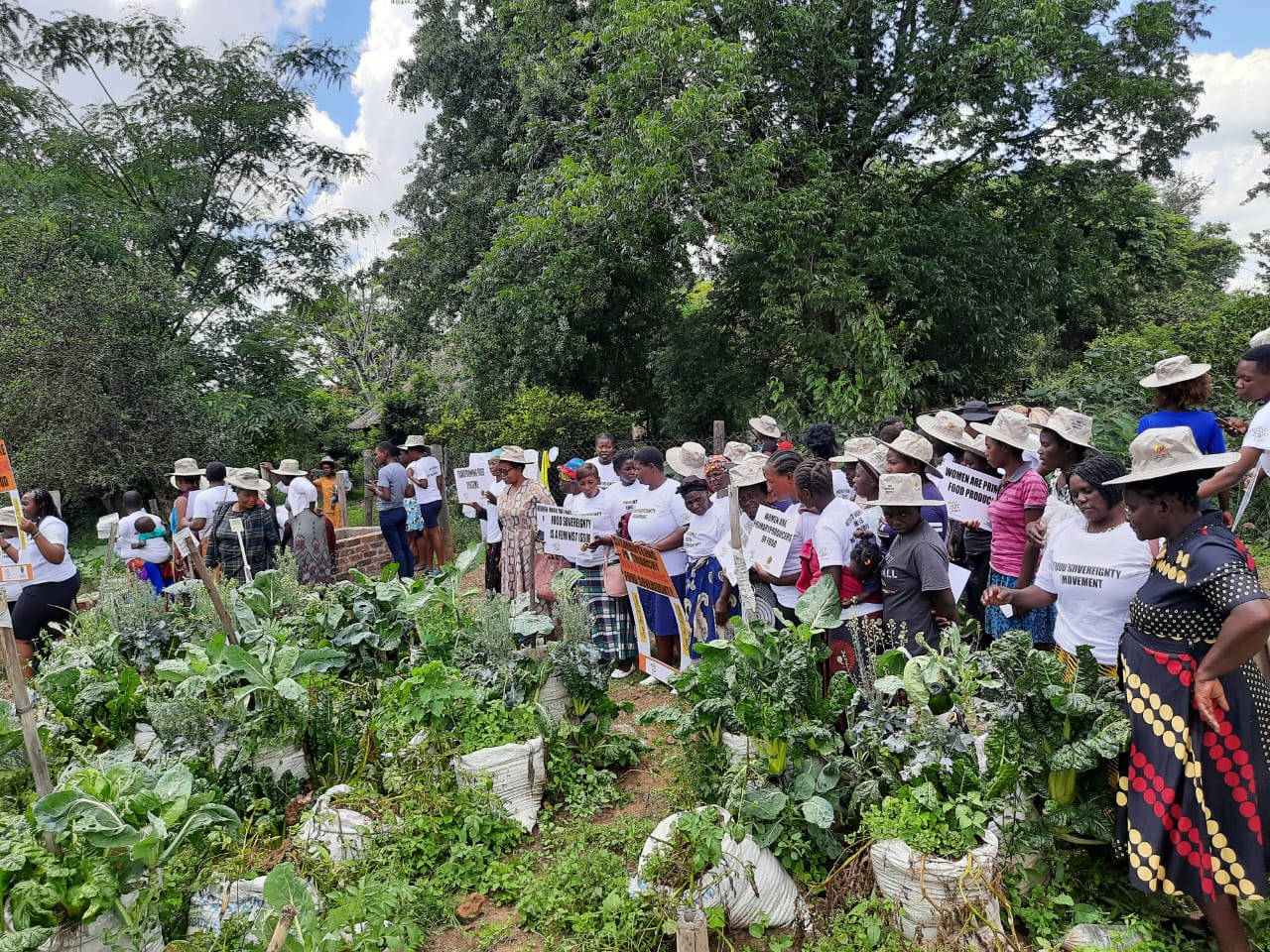|
Getting your Trinity Audio player ready…
|
The Sprout Women Empowerment Trust (SWET) hosted a successful Food, Seed, and Cultural Fair with the support of the Fambidzanai Permaculture Centre on Monday.
Caroline Mutimbanyoka, the Director of SWET told Spiked Online Media that the seed fair had many benefits for women who constitute the majority of the labour force in the agricultural sector.
“We had a successful seed exhibition. We managed to tour the seed bank at Fambidzanai as well as tour their container gardens and explored new ways of organic farming. The workshop enabled women farmers to share indigenous knowledge on seeds available in their locality as well as understand more about exchanging seeds as part of the promotion of women-centered and women’s rights-responsive food sovereignty.
“The organization is working on an indigenous book on local seeds, their benefits, and how they can be stored as a way to promote and preserve the knowledge of local seeds to benefit women farmers and the future generation. This will be completed in the first quarter of the year 2023,” Mutimbanyoka said.

SWET is a community-based organization from Zimbabwe founded in 2018 with the aim to address the socio-economic challenges that women and girls are facing in acquiring opportunities and resources to fully participate in a sustainable economy.
The organization also focuses on women’s involvement in governance and leadership processes with the aim to develop the community whilst nurturing the environment both in peri-urban and rural vulnerable spaces through training, advocacy, and awareness raising.
“Our key areas of work include these two components which are then linked to this project that we are doing on promoting seed saving to promote food sovereignty. We are going beyond awareness and also looking at policy change and advocating for policies that are gender centered when it comes to food systems. We focus on sustainable livelihoods and educational training programs in trade and creativity to promote women’s economic participation, and spearhead environmental awareness programs to educate women to reduce pollution and improve on the use of local resources,” said Sheryl Chigwedere, the SWET Programs Officer.
The project addresses the urgent need for women smallholder farmers to immediately take the centre stage in developing a formal legal framework document that will feed into the Seed Act which is currently weak and undermining the ability of the seed system to develop effectively, especially in ‘emergency’ situations or where the seed is part of a political programme.
Chigwedere said Zimbabwe’s Seed Act (revised 2001) carries positions that do not promote food security. Restrictions on seed passing, plant breeding, and seed banking make it impossible for farmers to access quality seeds. The monopolization of seed production by seed companies has added to food insecurity.
“Access to Open Pollinated Variety seeds, as opposed to hybrid seeds, is essential in reducing the impact of climate change. Open Pollinated Variety Seeds, commonly referred to as OPVs are seeds that result from pollination by natural agents such as wind, animals have genetic qualities that are adaptable to the environment as they undergo natural pollination making them resistant and more suitable during the climate crisis.”
Currently women and local farmers are not part of the current policy debate on rebuilding the seed system in Zimbabwe. They are often excluded from this important discourse as these women farmers are lacking the capacity and opportunity to express their ideas and perspectives in policy arenas.
Hybridized seeds are genetically modified to increase yield but they cannot be reused, making them ideal for immediate food security but are counterproductive with regards to issues of sustainability.

“Our organisation is therefore coming in to create opportunity through our engagement platforms to facilitate this urgent and critical discourse as well as involve key stakeholders such as key Parliamentary Portfolios and Members of Parliament, Ministry of Agriculture to become part of the driving force in contributing to strengthening the Seed Act and involve local women farmers to achieve the mandate of agenda 2030 0f not leaving anyone behind.
“The Food and Agriculture Organisation’s OCB report on Climate-Smart Agriculture (2022) indicates that the impacts of climate change are reducing the capacity of natural resources such as water and soil to meet the food demands of the world’s growing population. Enhancing systems thinking through holistic approaches is needed to address these complex and interdependent challenges,” said Mutimbanyoka.
The fundamental connection between people and the planet, with sustainable agricultural food systems, is at the heart of the 2030 Agenda for Sustainable Development as well as Africa’s Agenda 2063.
This stresses the urgent need to take concerted action and pursue policies directed at transformational change. Ending poverty and achieving zero hunger, whilst ensuring inclusive growth and sustainably managing the planet’s resources in the context of climate change and biodiversity loss will only be possible through holistic and integrated approaches, the human-centred approach that puts women and young people at the core of the narrative is an indispensable component towards climate justice, ending poverty and reducing hunger as outlined in Sustainable Development Goals 2,8, 13,14,15.
The Zimbabwe Vulnerability Assessment Committee (ZimVac) estimates that 5.5 million people in rural areas as well as 2.2 million in urban areas are food insecure. A large portion facing the crisis are women and children. Recurrent droughts in the 19/20 and 21/22 farming seasons leave women and other socially and economically disadvantaged groups absorbing the brutal impact of climate change.
This is largely due to deeply entrenched social roles, and economic exclusion. In addition, whilst women bear the brunt of climate change, they tend to be the least equipped to deal with its impacts due to exclusion in decision-making and policy formulation. The intensity of these challenges varies from country to country however Zimbabwean women face aggravated challenges due to the continued downward spiraling of the economy, the negative effects of unpaid care work that have a bearing on the social and economic participation of women in key national processes and lack of comprehensive gender responsive budgeting that addresses basic needs.
Food security, access to clean water, and shelter from extreme weather changes remain pertinent challenges of climate change. It is against this understanding that the project will contribute to a policy shift in rebuilding seed systems and contribute to cushioning the communities, especially women from food-climate related shocks as well as prevent further loss and damage resulting from climate change.
One of the main objectives of Sprout Women Empowerment Trust is to create platforms for women and girls to engage with stakeholders and duty-bearers to discuss challenges in their communities and come up with collective solutions and action plans.
“We also educate women and girls on diversified food sources and reduce the impacts of disturbances in food supply within families caused by hunger and poverty and educate women and girls on the effects of climate change and introduce adaptation measures at individual and household levels. The organization has been driving women and young people toward participation in climate action and policy reforms. This project therefore perfectly fits the work that already exists in our operations.
